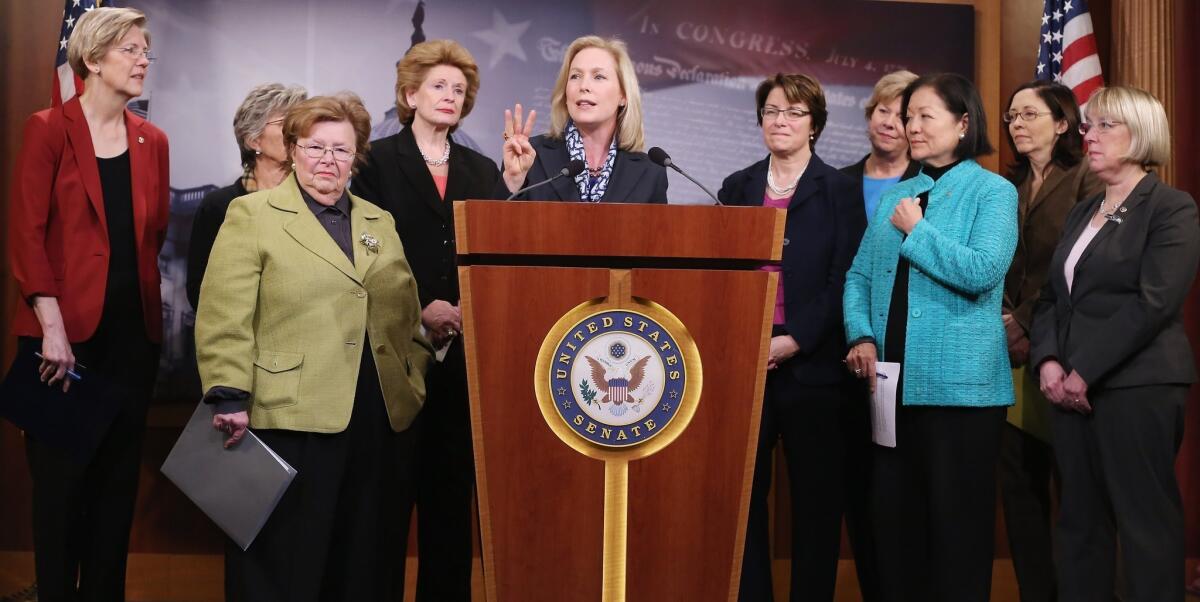Democratic women push President Obama’s increase in minimum wage

WASHINGTON -- President Obama’s pitch to women in his State of the Union address Tuesday night was, without question, an opening shot in the 2014 contests. At a time when Republicans have struggled to build support among women, Obama’s pledge to do away with the workplace policies of the “Mad Men” era caught the attention of that key voter bloc and was a step toward shifting conversation away from his unpopular healthcare law.
The Democratic women of the U.S. Senate picked up that ball on Capitol Hill Thursday, echoing the president’s call to increase the minimum wage by arguing that it “disproportionately affects women” who make up two-thirds of the minimum-wage earners in the country.
“No one in America should have to live in poverty after putting in a full day’s work, and yet that is the case today,” said California Sen. Barbara Boxer, who said the proposed increase from $7.25 per hour to $10.10 per hour would lift the wages of 15 million women nationwide.
In a show of solidarity, Boxer and her fellow senators reminisced about their own experiences with earning minimum wage. Sen. Amy Klobuchar of Minnesota recalled her time as a “car-hop” at the A&W, and Hawaii Sen. Mazie Hirono noted that her mother raised three children while working minimum wage jobs as a single parent: “I know what it’s like when your family runs out of money at the end of the month and how every dime matters.”
The legislation, known as the Minimum Wage Fairness Act, is expected to come to the Senate floor for debate in March, but it faces strong opposition in the House — where some Republicans have argued that the wage increase would lead to job losses across the country. A recent Pew Research Center survey showed that 73% of Americans favored the minimum wage increase to $10.10 an hour, while 25% opposed it. A narrow majority of Republicans, 53% to 43%, favored the idea.
Still, because of the fractious politics in Congress, local and state initiatives to increase the minimum wage may move more quickly than federal legislation. Thirteen states are raising the minimum wage in 2014. And in Los Angeles, labor leader Maria Elena Durazo and her allies on the City Council are pushing for a new law that would require large hotels to pay workers about $15 an hour -- double the national minimum and the highest in the nation.
Even with those moves, Boxer noted Thursday that a number of states “are way ahead,” but “a lot of the states are way behind.”
“If the states want to do more -- boy, I’d go door to door in California if I can help in certain communities,” Boxer said. “But it doesn’t take away from what we have to do here, which is set the floor.”
Twitter: @MaeveReston
More to Read
Start your day right
Sign up for Essential California for news, features and recommendations from the L.A. Times and beyond in your inbox six days a week.
You may occasionally receive promotional content from the Los Angeles Times.






